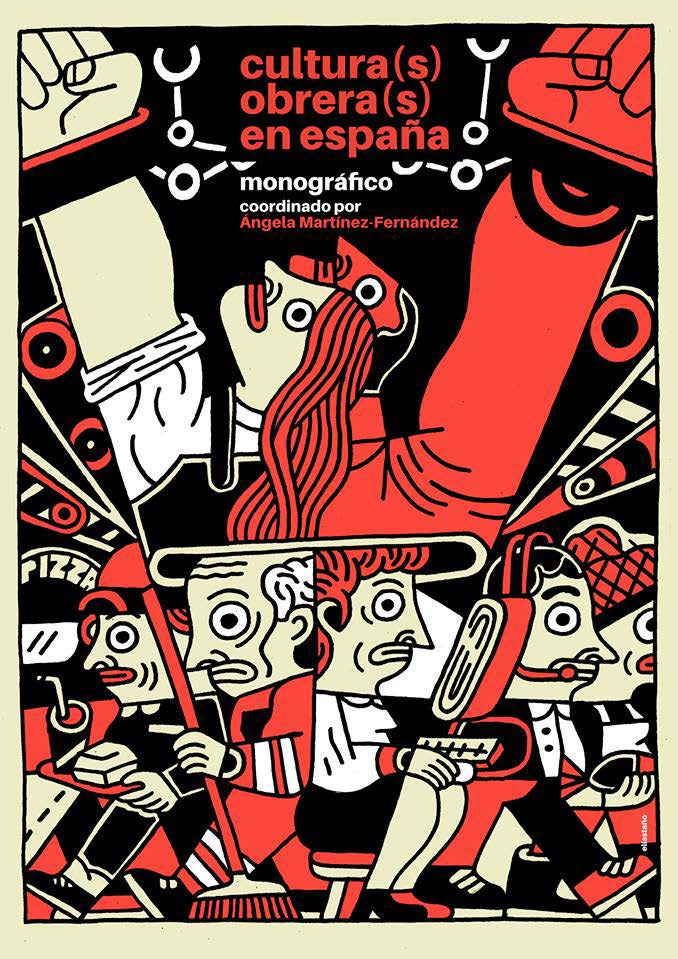Missing the 68´ mistimes. Past Futures for Absent-Minded Presents
DOI:
https://doi.org/10.7203/KAM.14.14279Keywords:
May 68, Memory, utopian thought, temporality. Abstract
Abstract
Between ironic distance and weeping gesture, the memory of the so-called “most historical year of contemporary history” is threatened of being petrified after returning to a past seen as strange and alien to the coordinated of the present. Unlike that generation that thought its future as the expectation of a progress, that left behind consumption and bureaucracy, ours, disaffected with the emancipatory future of modernity and the distopic present in which we are progressively sunk, directs its gaze towards a past. In this past the possible and desirable have been devastated by the practice of the known as impassable, leaning toward retrotopic views that make the past a place we should have never abandoned. This paper proposes an interpretative reading of the memories of 1968 departing from the theoretical assumptions of oral history and cultural studies of memory. Considering the way by which subjects represent historical time to give meaning to their lives, the text rethinks the 68 from the actuality of their future pasts, inviting to recover part of its utopian surplus for the futures awaiting to come.
 Downloads
Downloads
 References
References
Alverola, Octavio y Gransac, Ariane (2018). “«Mayo del 68», un hito más de la utopía”. VV.AA.. Esplendor en la noche. Vivencias de mayo del 68. Madrid: La Linterna Sorda: 75-102.
Arendt, Hannah (2016). “Pensamientos sobre política y revolución. un comentario. (entrevista concedida a Adelbert Reif en 1970)”. La última entrevista. Barcelona: Página Indómita.
Artimé, Manuel (2018). España. en busca de un relato. Madrid: Editorial Dykinson.
Auzias, Claire (2018). “Un mayo menor”. VV.AA, Esplendor en la noche. Vivencias de mayo del 68. Madrid: La Linterna Sorda: 114-142.
Balestrini, Nanni, MORONI, Primo (2006). La horda de oro. La gran ola revolucionaria y creativa, política y existencial (1968-1977). Madrid: Traficantes de Sueños.
Barbey, Bruno (2018). “Regreso a mayo del 68”. El País Semanal, 21 de abril de 2018.
Bauman, Zygmunt (2017). Retrotopía. Barcelona: Paidós.
Beorlegui, David (2007). Transición y melancolía. la experiencia del desencanto en el País Vasco. Madrid: Postmetrópolis.
Boym, Svetlana (2015). El futuro de la nostalgia. Madrid: Antonio Machado Libros.
Bregman, Rutger (2017). Utopía para realistas. A favor de la renta básica universal, la jornada laboral de 15 horas y un mundo sin fronteras. Barcelona: Salamandra.
Casanellas, Pau (2014). Morir matando. El franquismo ante la práctica armada. Madrid: Los Libros de la Catarata.
Cebeiro, Jesús (2018). “Mayo del 68”. El País, 5 de mayo de 2018.
Europa press (2017). “La Suñol celebra 40 años de Ajoblanco”, 30 de marzo de 2017.
Glazer, Peter (2005). Radical nostalgia. Spanish Civil War Commemoration in America. Rochester: University of Rochester Press.
Gildea, Robert, Mark, James y Warring, Anette (2013). Europe 1968’s. Voices of Revolt. Oxford: Oxford University Press.
Fleites, Álvaro (2009). “¿Retirarse a tiempo? La visión de 1968 francés en la España contemporánea”. Historia Actual Online 19 (primavera 2009): 163-176.
Ibáñez, Tomás (2018). “Cronología (subjetiva) de mayo del 68”. VV.AA, Esplendor en la noche. Vivencias de mayo del 68. Madrid: La Linterna Sorda: 50-73.
Ibáñez, Jordi (2009). Antígona y el duelo. Una reflexión moral sobre la memoria histórica. Barcelona: Tusquets Editores.
Iturbe, Lola (2017). “El Mayo de 1968”. VV.AA., Esplendor en la noche. Vivencias de mayo 1968. Madrid: La Linterna Sorda: 142-161.
Koselleck, Reinhart (1993). Futuro pasado. Para una semántica de los tiempos históricos. Barcelona: Paidós.
Le Goff, Jacques (1998). L’héritage imposible. París: La Découverte.
Leguineche, Manuel (1999). “Aquel año 68”. Protagonistas del siglo XX. Madrid: El País.
Elorza, Antonio (2018). Utopías del 68. De París y Praga a China y México. Madrid: Pasado y Presente.
Gracia Gracía, Jordi, Ruiz Carnicer, Miguel Ángel (2001). La España de franco (1939-1975). Madrid: Síntesis.
González, Ramón (2018). 1968: el nacimiento de un mundo nuevo. Barcelona: Debate.
Marías, Julián (1977). “El ejercicio de la libertad”. El País, 14 de agosto de 1977.
Marwick, Arthur (1998). The Sixties: Cultural Revolution in Britain, France, Italy, and the United States. Oxford: Oxford University Press.
Mclaughin, Katie (2014). “Eight Unforgettable Ways 1968 Made History”, CNN, 31-07-2014.
Passerini, Luisa (2006). Memoria y utopía. La primacía de la intersubjetividad. Granada: Universidad de Valencia-Universidad de Granada.
Passerini, Luisa (2004). Autobiography of a Generation: Italy, 1968. Middletown: Wesleyan University Press [1996].
Pastor, Jaime, garí ramos, Manuel (2009). 1968: el mundo que pudo cambiar de base. Madrid: Los Libros de la Catarata.
Portelli, Alessandro (1990). “Uchronic Dreams. Working Class Memory and Possible Worlds”. Raphael Samuel y Paul Thomson (eds.). The Myths We Live By. London: Routledge: 46-56.
Ross, Kristin (2008). Mayo del 68 y sus vidas posteriores. Ensayo contra la despolitización de la memoria. Madrid: Antonio Machado Libros.
Sádaba, Javier (1987). Las causas perdidas. Madrid: Ediciones Libertarias.
Traverso, Enzo (2007). El pasado, instrucciones de uso. Historia, memoria, política. Madrid: Marcial Pons.
Wallerstein, Immanuel (1989). “1968. Revolución en el sistema mundo. Tesis e interrogantes”. Estudios Sociológicos, 7, 20 (may-ago): 229-250.
Wilhelmi, Gonzalo (2016). Romper el consenso. La izquierda radical en la transición española (1975-1982). Madrid: Siglo XXI.
VV.AA. (2018). “Mayo del 68. así lo contó la prensa”. El Mundo.
Downloads
Published
How to Cite
-
Abstract739
-
Artículo (Español)486
Issue
Section
License
This journal provides an immediate free access to the content on the principle that freely make investigation available to the public, which promotes an increased global knowledge exchange.
Unless otherwise indicated, texts published in this journal are under the license Attribution-NonComercial 4.0 by Creative Commons. These texts may be copied, distributed and publicly communicated whenever the publication’s author and title are quoted and whenever they are not used for commercial purposes. In any case, intellectual property of the articles and its potential economic rights entirely belong to its authors.
The full license can be consulted on https://creativecommons.org/licenses/by-nc/4.0/. We encourage authors to disseminate papers published in Kamchatka. Journal of cultural analysis electronically, in institutional digital repository or in their websites.





